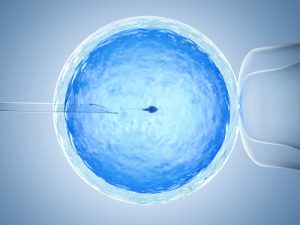In vitro fertilization (IVF) and intrauterine insemination (IUI) are fertility treatments that help people struggling to conceive. The main difference between IVF and IUI is that in IUI, fertilization takes place inside the woman’s womb. The sperms are injected into the uterus once or twice during the ovulation days of the intended mother.
IVF involves combining a sperm and an ovum outside the uterus, that is, in the lab. The fertilized eggs are then placed in the uterus, where they would implant themselves on the lining of the uterus. IVF has a higher success rate than IUI. On the other hand, IUI is preferably less expensive than IVF. Before choosing the best option between IVF and IUI, consider the following.
Processes to Attain a Successful IVF
- Diagnostic testing is done before the cycle to check the woman’s health. The tests are done to determine any factor that can affect the treatment.
- Hormone preparation is done in the case of women who do not produce eggs. In this case, injections are given to stimulate egg production and ovulation.
- The woman is stimulated by either oral or injectable hormones, which help her produce multiple eggs simultaneously rather than a single egg in a period of the cycle as it usually happens. At least three to four eggs are made, and they will be fertilized by sperm outside the uterus in a laboratory setting using IVF procedures.
- The embryos are transferred back into the uterus through an ultrasound-guided procedure, where they will implant themselves on the lining of the womb and develop into fetuses.
- Once embryo transfer is done, the fertility specialist may give medications to enhance pregnancy chances for up to two weeks.
- The women would have to go for regular monitoring and follow-ups during the pregnancy.
- The woman would also have to undergo an amniocentesis test to check for any abnormality in the fetus.
Advantages of IVF vs. IUI
Women who cannot become pregnant due to blocked fallopian tubes or a tubal blockage can use IVF.
- Sometimes, the cause of infertility is unknown and in vitro fertilization is the only option left to conceive.
- It can help women with a decreased egg reserve, where only a few eggs are available for fertilization.
- If the woman has an increased risk of passing on hereditary diseases, IVF reduces this risk by allowing the embryos to be tested for these diseases before being transferred into the uterus.
- In some cases, it can be used in women whose bodies do not produce eggs (primary ovarian insufficiency) or make eggs that do not mature properly (premature ovarian failure).
- It helps women who have been diagnosed with cancer of the reproductive organs, and their treatment may have rendered them infertile.
Disadvantages of IVF vs. IUI
- IVF requires that women take injections or pills to stimulate their ovaries to develop multiple eggs.
- It may take several cycles of IVF to become pregnant.
- The cost is high and varies from clinic to clinic.
- There is a risk of multiple pregnancies, increasing the risk of complications for both mother and babies.
- There is a risk of ovarian hyperstimulation syndrome (OHSS) when the ovaries are stimulated to produce multiple eggs.
- It is associated with an increased risk of congenital disabilities, low birth weight and miscarriage.
- It may not be covered by health insurance in some countries or may not be available through national healthcare systems.
- There is no guarantee that IVF will result in a live birth, and there are also other risks to consider, including ectopic pregnancy, miscarriage and stillbirth.
- Some couples feel emotionally distressed about resorting to assisted reproductive technologies for conception.
- IVF does not work for everyone and does not restore fertility if it fails.
Benefits of IUI vs. IVF
- IUI is a simple, low-cost fertility treatment method with a reasonable success rate.
- IUI is not complicated to perform and can be done without any medications or surgery.
- IUI can be used on its own or in combination with other methods of assisted reproduction, such as IVF.
- There are no risks associated with multiple pregnancies and OHSS.
- The cost of IUI is low, and this treatment option may be covered by health insurance in some countries.
- It is less invasive than IVF and does not require injections of hormones or medications, making it safe for both partners involved.
- Because IUI uses natural material, there is no risk of genetic abnormalities or health complications from using donated sperm.
Conclusion
If you have been struggling with infertility, you probably feel frustrated and desperate. Infertility can happen in couples regardless of age. Every situation and every patient is different; you should consult a fertility specialist who will review your case and recommend the best option between IVF and IUI.

 Women who cannot become pregnant due to
Women who cannot become pregnant due to 


